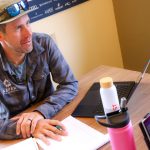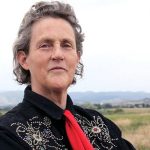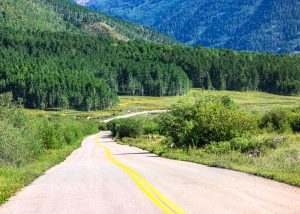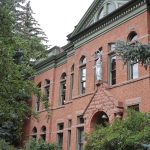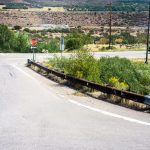Aspen symposium brings animism to Wheeler Opera House
Author, ecologist David Abram discusses awakening an erotic relation to everything
Special to The Aspen Times
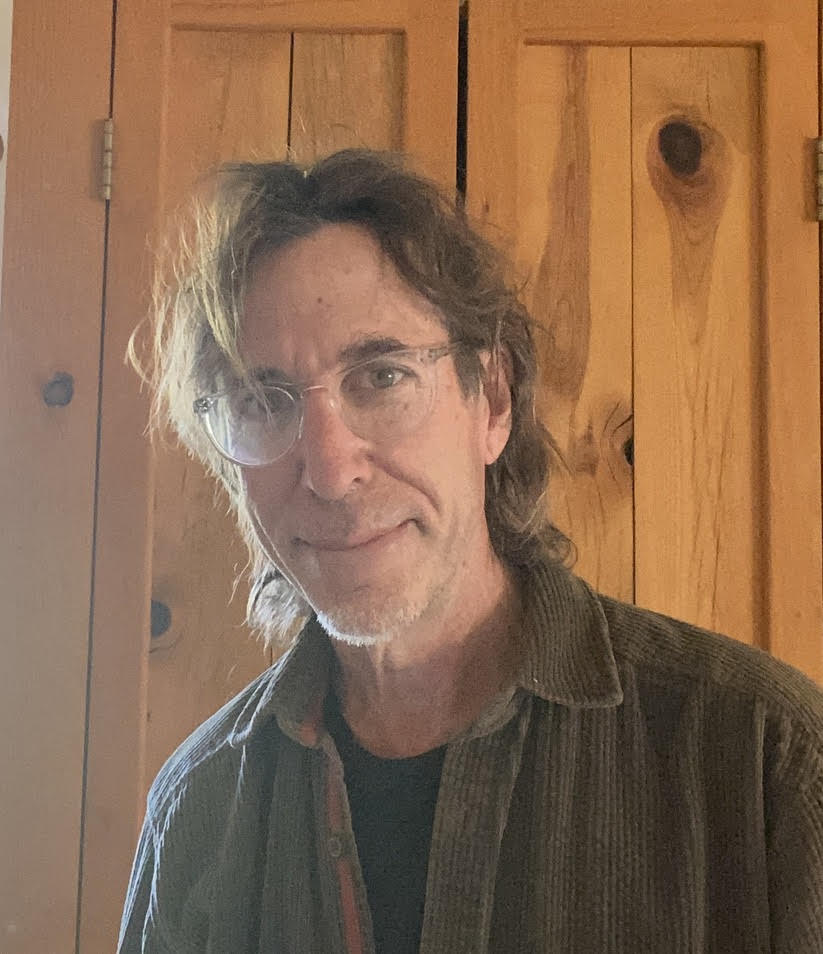
David Abram/Courtesy photo
“We are human only in contact, and conviviality, with what is not human.” So claimed author and ecologist David Abram in a conversation with The Aspen Times.
Abram, author of “Spell of the Sensuous” and “Becoming Animal,” is one of the most renowned eco-philosophers of our time. Credited with catalyzing a resurgence of interest into the animacy and agency of the living world, his books have been beloved manuals for waking into sensual kinship with the vibrating, simmering, alive world around us. He will be speaking at the upcoming Frontiers in Knowledge symposium on Sept. 13 at the Wheeler Opera House, which will present discussions on cosmology, quantum physics, neuroscience, the origin of life, and the mysteries of consciousness.
Rooted in the philosophical tradition of phenomenology, which focuses upon our directly-felt experience, he asks if the active, animate, sentient world can be sensed and perceived. In this vein, he says, we can unblock our sensory reciprocity with the sensuous earth.
Everything is alive, Abram insists. His book, “Spell of the Sensuous,” published in 1996, was, according to him, “the first, modern, philosophical work arguing for a renewal of animism, for a replenishment of our ancestral, animistic sensibility.”
Such a revival of understanding, the human as “being alive within a world that is itself alive,” is no small philosophical turn. Animism is the perceptual style common to every Indigenous, traditionally oral culture that we know of. These are the same place-based cultures, Abram underscores, that ecologists tend to extol because they “managed to live for century after century, millennium after millennium, without completely disrupting the ability of their surrounding landscapes to replenish themselves and always return to a kind of flourishing.”
Such traditionally oral, Indigenous cultures are outrageously diverse in their beliefs and lifeways. Yet there are a few commonalities. He says that one is the assumption that everything is alive. Everything, including humans, other animals, plants, stones, mountains, weather patterns, and even our own built artifacts. Another is that everything is expressive.
“Some things speak in rhythm,” he says, “like crickets or the splashing speech of the waves on the beach, and some speak in song, like birds. And some speak a language of movement and gesture, like the shadows shifting across the face of the cliff. But to our creaturely bodies, everything is expressive.”
What is the impact of this worldview? It’s an invitation into relationship. At a time when almost all of our basic relationships with the rest of nature have been disrupted and broken, Abram’s proposals offer a practical response to the disconnection crisis we are in.
His work is prescient for today, when intersecting climate and sociopolitical crises are increasing in scale and pace.
“It’s very hard to enter into some sort of attunement or reciprocity with anything that’s viewed as an inert object or with something you see as entirely determinate set of mechanical processes,” he says.
But a forest or a wetland is not a mechanical object, he says, “it’s an open-ended community of sensitive and intelligent beings, each of them improvising with one another.”
Abram shared that his fascination with sensory perception had its roots in his earlier profession as a skilled sleight-of-hand magician performing throughout North America. At one point, he travelled throughout Southeast Asia — through Indonesia, Sri Lanka, and Nepal — looking to meet and learn from the traditional, indigenous magicians, or medicine people, who were practicing in those cultures. He discovered, much to his surprise, that although these folks were indeed the healers for the villages in their vicinity, their primary role was to act as intermediaries between the human community and what he terms the “more-than-human community” of beings.
He soon came to realize that this wider community “includes us two-leggeds, but also includes all of the other walking and crawling and flapping, swooping beings, the rooted powers like herbs and trees, but also rivers, dry riverbeds, storm clouds, the wind, rocks, mountains. Anything that we can experience with our senses was assumed to be a sensitive, experiencing being in its own right, able to respond to the other beings around it, and to affect us.”
In the West, Abram says, we have primarily lost this sense of the broader ecology as a collective of subjects, as a community of “living, intelligent presences.” But, he urges, we can return.
“Gradually, then, our senses awaken to the world. … Our toes listen to roots sending capillaries in search of water, and our skin replies to the lichens radiating in slow waves across the surface of the upthrust bones of the hill,” he writes in “The Spell of the Sensuous.”
Humans, he reminds us, are “tuned for relationship.” His work is an invitation to nourish our collective sensibilities, to participate not just with other humans and our technologies but with the “many-voiced landscape.” To indulge our primal “need for relationship with that which is other than ourselves and our own creations.” To, as he said in our conversation, “awaken an erotic relation to pretty much everything.”
For, Abram reminds us, “we are human only in contact, and conviviality, with what is not human.” What are the implications of such a premise? How might this shift inform human actions and behavior in protection of the living world? If we “renew our acquaintance with the sensuous world,” he argues, we rediscover the “sole solid touchstone for an experiential world now inundated with electronically-generated vistas and engineered pleasures; only in regular contact with the tangible ground and sky can we learn how to orient and to navigate in the multiple dimensions that now claim us.”
In sum, an erotic relation with the sensuous world. That, indeed, is a spell.
The Frontiers of Knowledge symposium at the Wheeler Opera House will be a day-long exploration that offers to deepen a sense of belonging and interconnectedness alongside a remarkable lineup of scientists, philosophers, and visionaries including Brian Swimme, Mary Evelyn Tucker, Jude Currivan, Bruce Damer, Matthew David Segall, Iain McGilchris, and Richard Tarnas.
The event is conceived by Candice Olson, a philosophy, cosmology and consciousness doctoral student at the California Institute of Integral Studies, and co-produced by Aspen Public Radio, Centre for MINDS, California Institute of Integral Studies, and the Mays Family Foundation.
More information, tickets, and the full schedule can be found at ciis.edu/events/frontiers-knowledge.
Basalt football bounces back, handles business in win over Rifle
After going undefeated in the regular season, the Longhorns’ sloppy 16-15 loss last week to Evergreen in their home opener was a tough pill to swallow.
Details released surrounding Aspen’s Castle Creek Road bike death
A 64-year-old woman was involved in a bicycle accident on Castle Creek Road that resulted in her death on Monday.



